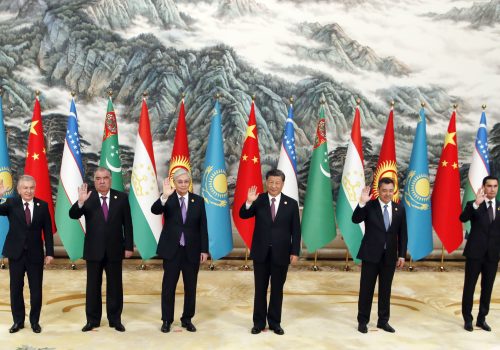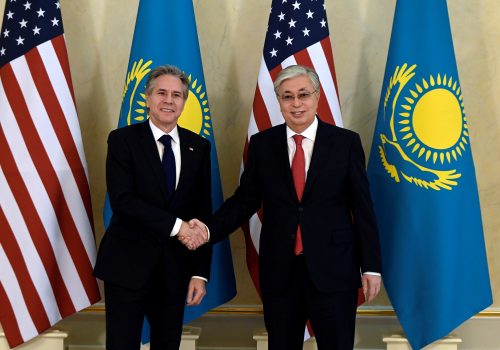The death and destruction wrought by the recent violence between Kyrgyzstan and Tajikistan in the Ferghana Valley is a tragedy, with scores of victims on both sides of the border. Worryingly, the clashes might yet have broader implications for both countries and their Central Asian neighbors. How might the confrontation affect the rights of ethnic minorities, particularly in the various exclaves throughout the region? How can Bishkek and Dushanbe avoid a security dilemma that might further destabilize an already tense situation?
Dr. George Gavrilis, fellow at the University of California-Berkeley’s Center for Democracy, Toleration, and Religion, Jonathan Henick, deputy assistant secretary at the Bureau of South and Central Asian Affairs at the US Department of State, Akylai Karimova, Kyrgyz civil activist based in Osh, Dr. Jennifer Brick Murtazashvili, nonresident senior fellow at the Atlantic Council’s Eurasia Center, and Anahita Saymidinova, Dushanbe-based journalist for Iran International TV, join to discuss the recent clashes between Kyrgyzstan and Tajikistan and their implications for the wider region. Ambassador John Herbst, director of the Eurasia Center, moderates.
spotlight

Between East and West
Central Asia
The Central Asian Republics—Kazakhstan, Kyrgyzstan, Uzbekistan, Tajikistan, and Turkmenistan—are located at the nexus of Russia, China, South Asia, and the Middle East. Leveraging their critical geography, these nations are renewing their role as the crossroads of trade between the West and Asia—resulting in significant economic development, especially in the sectors of energy and natural resources. While moves toward reform and democracy have been made since independence in 1991, corruption and human rights issues remain prevalent throughout the region.
RELATED experts

The Eurasia Center’s mission is to promote policies that strengthen stability, democratic values, and prosperity in Eurasia, from Eastern Europe in the West to the Caucasus, Russia, and Central Asia in the East.






